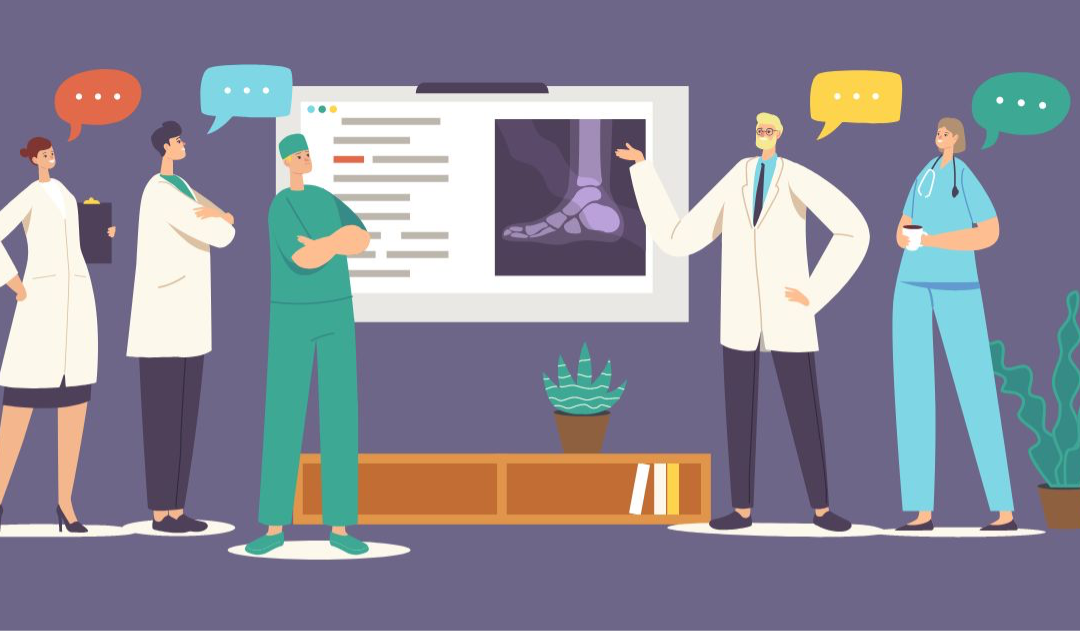Innovations are paving pathways for more interactive and engaging continuing medical education experiences. From escape rooms to augmented reality, innovative strategies and platforms are redefining engaged learning, empowering physicians to excel in their practice.
Fresh Facets of Collaborative Medical Learning
No longer just a recreational activity, escape rooms are being tailored for medical training. Participants work together to solve puzzles and clues to find their way out of a locked room. Some examples of puzzles and clues include scannable QR codes, hiding information with a black light, and using riddles, maps, and activities that require teamwork and leadership.
Virtual reality (VR) simulations, too, are gaining traction. For example, interprofessional education (IPE) aims to train learners from different professions to work collaboratively. However, it can be challenging to bring learners together due to different schedules and locations. Researchers at Tufts University School of Medicine developed a VR tool that was convenient to use and improved learners’ perception of other healthcare professionals.
Another technological innovation is the integration of augmented reality (AR). AR overlays digital imagery or information onto the real world and can be especially useful in complex fields like anatomy. For instance, Case Western Reserve University partnered with Microsoft to leverage the HoloLens AR headset in medical training. The university developed holographic content that allows students to explore and interact with 3D anatomical structures, promoting collaborative discussions and learning without the traditional reliance on cadavers.
AI-powered chatbots are also emerging as facilitators of collaborative learning. Beyond its functionality as a digital assistant in medical education, the very process of training and refining the chatbot becomes a collaborative learning experience. A team of physicians and educators must interact, provide feedback, and make refinements, facilitating continuous peer-to-peer learning and critical reflection.
Elevating Medical Education Collaboratively
The power of collaborative learning, intertwined with technology, can breathe new life into even the most traditional areas of medical education. Take continuing medical education (CME) as an example. It’s essential for healthcare professionals, but some find its usual format outdated and siloed. Platforms like Gather-ed, which provides peer-to-peer online learning for health professionals, want to change that by adding social, collaborative components to CME, making the learning more interactive and engaging.
Key features of Gather-ed include small group of invited clinicians, group collaboration, and live group discussions, where participants tackle complex clinical scenarios, share best practices, and learn from shared experiences. Additionally, the platform introduces group challenges simulating real-world medical challenges. Whether curating a management plan for a specific clinical scenario or devising a quality improvement project, each task demands collective effort. This fosters teamwork and reflects the collaborative essence of modern healthcare delivery.
In conclusion, blending innovative strategies with time-tested educational practices equips physicians with richer, dynamic learning experiences. As healthcare advances, embracing these novel approaches ensures both excellence in medical practice and the highest standard of patient care. Indeed, the future of healthcare learning is shaping up to be both deeply collaborative and refreshingly innovative.
If you believe in the value of shared experiences and the transformation they can bring to the healthcare sector, consider joining the Gather-ed community. Reach out to us and become a part of this innovative approach to healthcare education.
Have you explored new ways to enhance team-based learning in healthcare? Share your strategies and stories below. And if you’re already a part of the Gather-ed community, we’re all ears! Tell us about the difference it’s made in your professional life.
